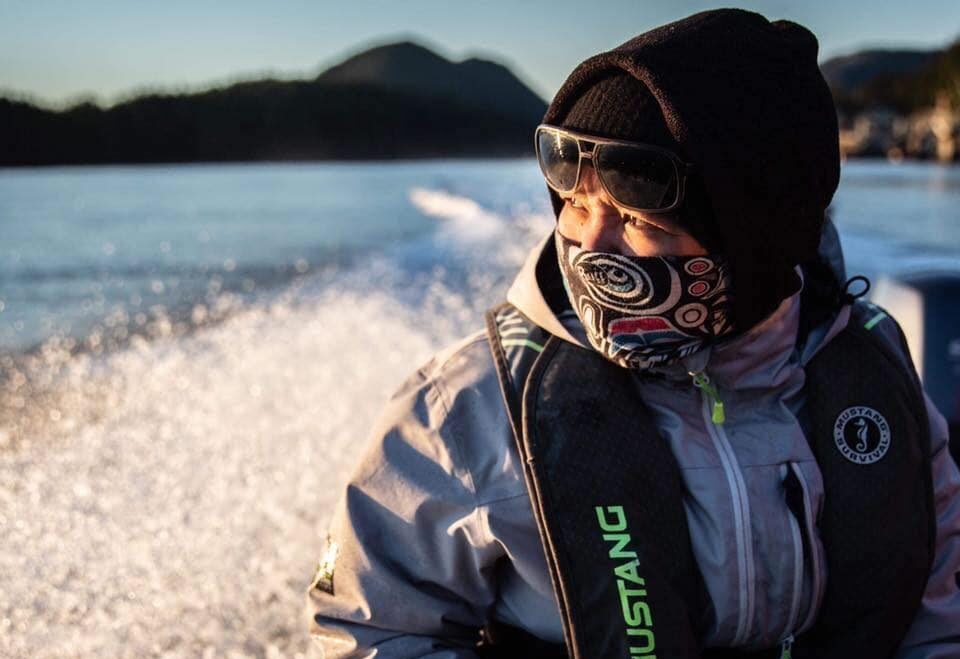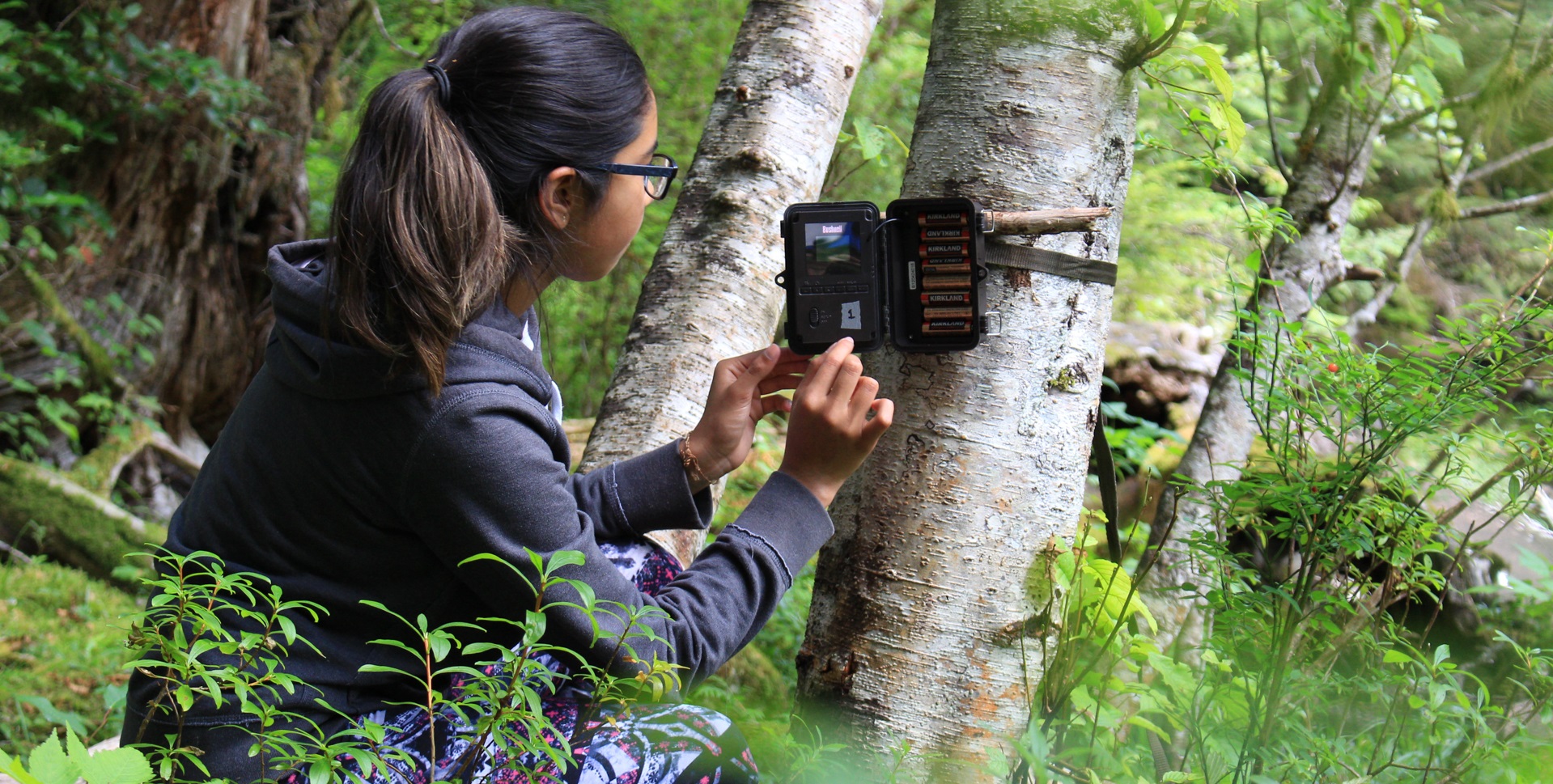As the federal government announced $1.5-billion in relief funds to help BC restart its economy, North Coast First Nations tourism operators say more help is needed to keep Indigenous businesses afloat until their communities can safely reopen.
Sk’aal Ts’iid James Cowpar, owner/operator of Haida Style Expeditions, says advocacy for stimulus packages is needed to support Haida Gwaii and other regions where tourism businesses are the bread and butter of local economies. “There’s literally no season for most of us because the prime booking season is past. We lost 70 per cent of our business and due to the uncertainties, we don’t know when we plan to open again on Haida Gwaii,” says Cowpar.
Cowpar understands protecting the community health of Haida Gwaii is a number one priority right now. For the future, he’s anxious to see support for ecotourism businesses that have helped the transition from a resource extraction-based model to a local sustainable economy. “This is the perfect opportunity to prioritize this issue,” he points out. “First Nations communities have small businesses. They take risks. They hire. Yet there’s never any support.”
The company received Canadian Emergency Business Account (CEBA) funds, but Cowpar says loans are not enough. “The message still needs to be clear to Ottawa that small business needs help or we may not have an industry going
forward. Borrowing more money, taking on more debt, is not the answer. We need an economic plan, we need advocacy, we need a bail-out.”
Haida Style Expeditions first began offering cultural adventure tours in 2013 and is now the only Haida-owned business that operates in Gwaii Haanas National Park Reserve, which remains closed under federal COVID-19 restrictions. “A little company like ours hires a dozen people,” Cowpar says. “We put in over $150,000 in wages to the community for a short season. We buy local gas and our bill is well over $100,000. Our little business alone came in at close to $1.5 million dollars.”
As British Columbia reviews where $1.5-billion in new federal “restart” funds will be spent, Cowpar says the future of his business and other Island tourism operators is uncertain. “If there’s no certainty established now for 2021, we’ll be in a financial crunch. We’re struggling to hold on until then,” he explains. “A long-term, multi-year emergency program may be required at this point. It’s kind of hard to comprehend.”
In late May, after announcing an earlier closure of its summer season, Spirit Bear Lodge in Kitasoo/Xai’xais territory has said it will shut down for the entire 2020 season. “Thankfully we have the majority of our guests transferring to next year,” says general manager John Czornobaj. “Fingers crossed we can operate in 2021. Now we’re looking at whatever we will need to build guest confidence and keep staff safe in what everyone’s calling the ‘new normal.’”
With many future bookings dependent on international travel, the Lodge plans to work with tourism marketing agencies to grow its domestic market. The social enterprise has applied for federal emergency funds and a $25,000 loan from Canada’s Indigenous tourism association. A federal 75 per cent wage subsidy is helping to maintain a core management team and to allow for online and in-person staff training, and trail-cutting programs in August.
Czornobaj says more provincial support is needed for Indigenous tourism in the region. “The biggest funding
shortcoming is for those businesses in desperate situations that have to pay rent and need to weather this storm until they can begin bringing in some revenue. That’s the most important place to put it right now.”
In Gitga’at territory, Marven Robinson, owner/operator of Spirit Bear Tours has cancelled all bookings for his upcoming season. He says concerns about the health of his community and guests, and uncertainty about border closures prompted the decision.
The closure will have economic ripple effects in Hartley Bay where Spirit Bear Tours provided income for eight employees, boat charter operators, and other suppliers and services. “I can’t think about myself, I just think, what am I going to do about the staff who depended on this?” Robinson says. “It was two months of work, but they were being paid pretty good.” He’s also concerned about private wildlife tour companies that are still operating in the territory. “I’ll have staff going out to the rivers to monitor that. I don’t want people going up these rivers on their own.”
With an accommodations sector hard-hit by COVID-19, the Bella Guest Cabins owned by Cliff and Ramona Starr in Haíɫzaqv (Heiltsuk) territory are closing permanently. Opened in 2014, the popular tourist cabins were a small business success story, often operating at peak capacity during the spring and summer seasons. With borders closed worldwide, Cliff Starr says he could see no recovery in sight for the next two seasons.
“We had a look at a couple of the programs under emergency response and basically, they are just more loans,” he says. “So we’d have to make more money to pay them back and that would set us back four or five years.”
While a sale is being negotiated, the business will no longer operate as tourist cabins, which Starr considers a loss for Bella Bella. “We really need more accommodations here. There was a steady increase in tourism over the past few years since we opened,” he says. “We don’t have a fishing and forestry economy here as much anymore, so we have tried to move on toward something else.”


